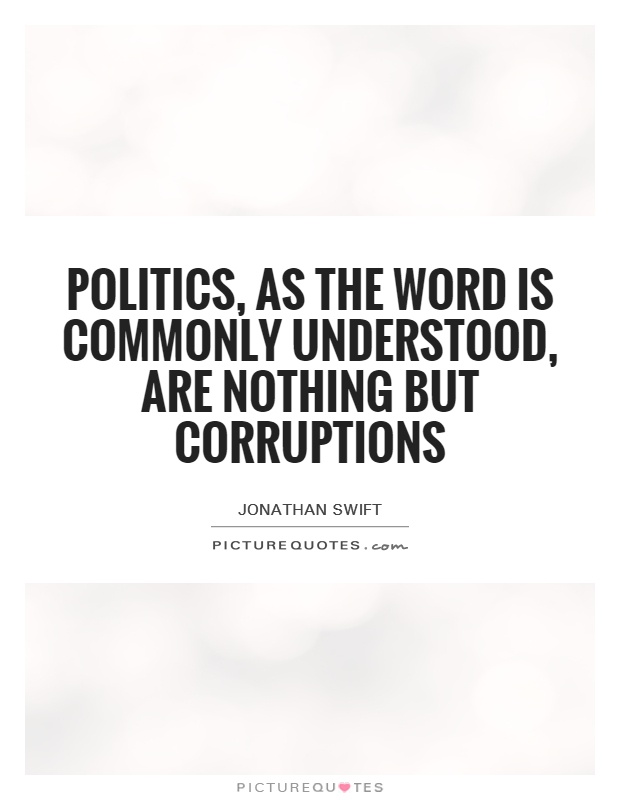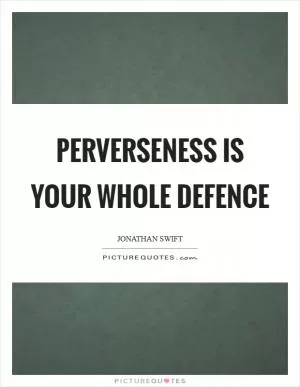Politics, as the word is commonly understood, are nothing but corruptions

Politics, as the word is commonly understood, are nothing but corruptions
Jonathan Swift, the renowned satirist and author of works such as Gulliver's Travels and A Modest Proposal, was a keen observer of human nature and society. His sharp wit and biting satire often targeted the political establishment of his time, exposing the corruption and hypocrisy that he saw as rampant in the world of politics. In Swift's view, politics, as the word is commonly understood, were nothing but corruptions.Swift's satirical works often depicted politicians as self-serving and dishonest individuals who were more concerned with their own power and wealth than with the well-being of the people they were supposed to serve. In Gulliver's Travels, for example, the Lilliputians engage in petty and absurd political squabbles that serve no purpose other than to further their own interests. Swift uses this satire to critique the political system of his time, highlighting the absurdity and corruption that he saw as inherent in politics.
In A Modest Proposal, Swift takes aim at the British government's handling of the Irish famine, suggesting that the impoverished Irish should sell their children as food to the wealthy English landowners. While Swift's proposal is obviously meant to shock and provoke, it also serves as a scathing indictment of the callousness and indifference of the ruling class towards the suffering of the poor.
Swift's views on politics were shaped by his own experiences as a clergyman and a political commentator in 18th-century England and Ireland. He witnessed firsthand the corruption and incompetence of the political elite, and his works reflect his deep-seated cynicism towards those in power. Swift believed that politics, as they were practiced in his time, were fundamentally corrupt and irredeemable.












 Friendship Quotes
Friendship Quotes Love Quotes
Love Quotes Life Quotes
Life Quotes Funny Quotes
Funny Quotes Motivational Quotes
Motivational Quotes Inspirational Quotes
Inspirational Quotes